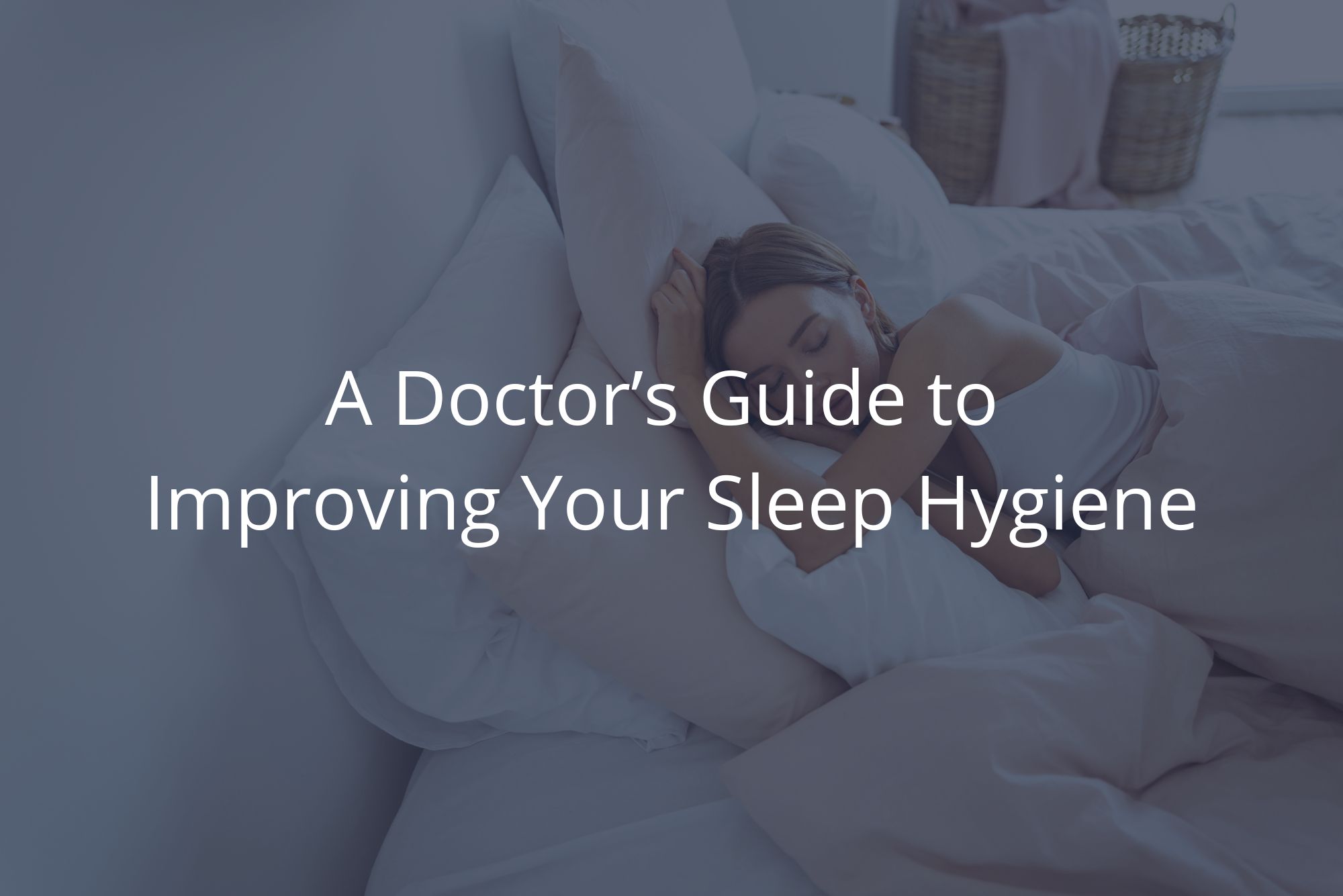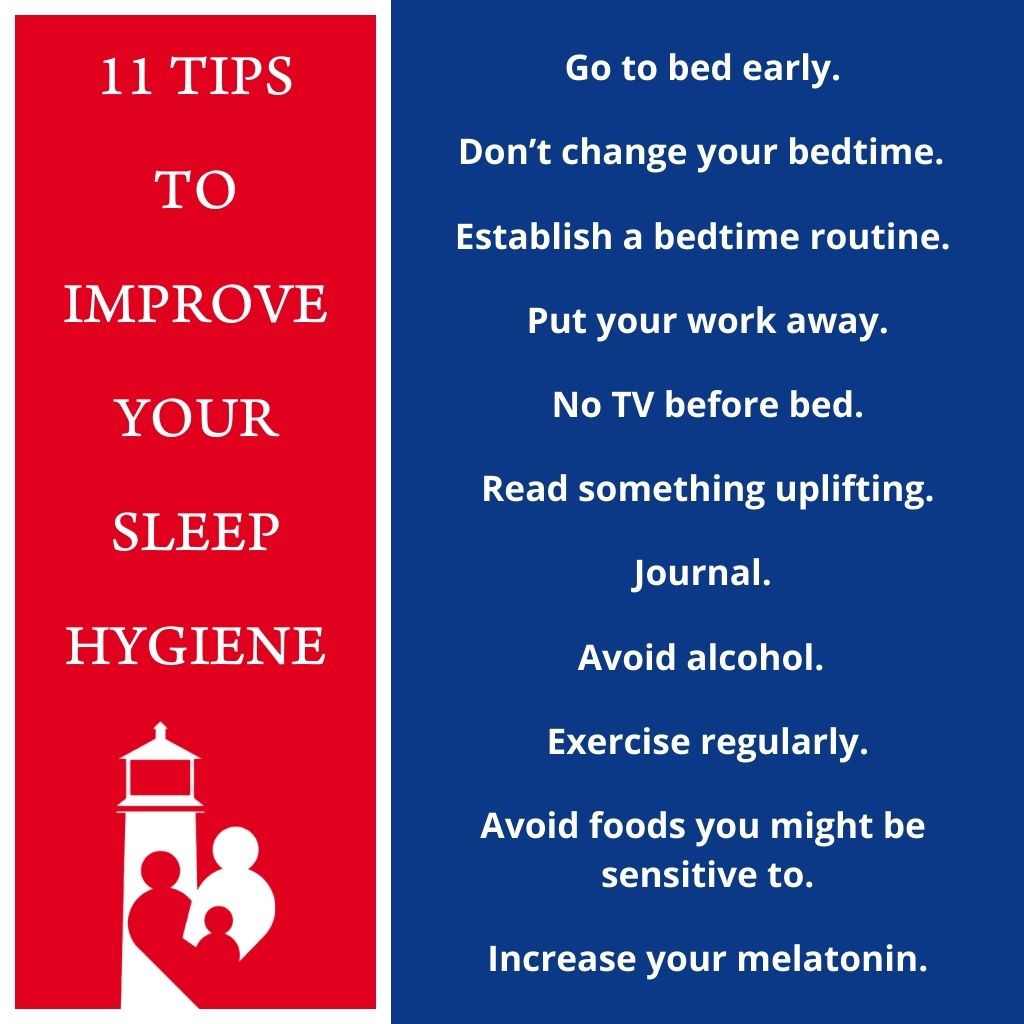
As everyone who has ever gone without it knows, sleep is vitally important to good health. It’s crucial for immune system repair, nervous system relaxation, hormone balance, and, well, pretty much everything. That’s why it’s one of the 4 Pillars of Health.
One of the most effective actions we can take to encourage healthy sleep is to create good sleep habits, also known as sleep hygiene. When we cue our bodies that it’s time for sleep, we’re more likely to get the restorative rest we need.
Below, follow my simple guide to improving your sleep hygiene and strengthening this crucial pillar of health.
What Is Sleep Hygiene?
The Centers for Disease Control (CDC) defines sleep hygiene as good sleep habits. I think of it as a regular routine that starts around two hours before bedtime. This routine is designed to avoid stimulation and promote relaxation.
Good sleep hygiene results in improved sleep duration and improved sleep quality. And while some people think they function just fine on little sleep, the health benefits of restful, adequate sleep are borderline incalculable.
Top Sleep Hygiene Tips
Now that you know what sleep hygiene is and why it matters, let’s delve into the particulars of what a solid pre-bedtime routine looks like. Many of these tips are customizable for the individual, so you can experiment and figure out what works best for you.
1. Go to bed early.
And I mean early. As early as possible. Our adrenal systems are hard at work repairing and recharging between the hours of 11 p.m. and 1 a.m. This effort is far more productive if we’re asleep while it occurs.
The gallbladder also dumps its toxins during this time. If you’re awake, those toxins back up into your liver. Be nice to your liver. Go to bed early.
2. Don’t change your bedtime.
That early bedtime you just committed to? Keep it.
Go to bed and wake up at the same times each day, even on the weekends. This will help your body get into a sleep rhythm. The body loves rhythm and routine, and it can function much more fluidly and dependably when it knows what to expect.
3. Establish a bedtime routine.
The purpose of a bedtime routine is to make you feel relaxed. It’s not the time to listen to true crime podcasts or puzzle through an inter-personal problem. Pick a routine that soothes you — something like meditation, deep breathing, aromatherapy, a massage from your partner. Find what makes you feel relaxed and repeat it each night to help you release the day’s tension.
4. Put your work away.
Work stimulates wakeful hormones like cortisol and keeps your body from winding down. Preferably two hours — or more — before bed, put your work away. It’ll still be there in the morning.
5. No TV before bed.
TV disrupts your brain’s pineal gland, whose job it is to secrete melatonin, a powerful sleep hormone. Screens, especially blue light, stimulate the brain and prevent you from falling asleep quickly; they should be avoided before bed.
6. Read something uplifting.
Read yourself the kind of bedtime material that leads to sweet dreams. Something spiritual, uplifting, or inspiring. Bedtime reading shouldn’t be stimulating to your nervous system, so avoid mystery and suspense novels — and, most importantly, avoid the news.
7. Journal.
If you lie awake in bed with a racing mind, it might be helpful to keep a journal by your bed. Before you turn out the light, do a “brain dump” on paper to get the thoughts out of your head. Using pen (or pencil) and paper tends to be more effective than using an electronic tablet or cell phone.
8. Avoid alcohol.
Most people know to avoid caffeine in the evening, but avoiding alcohol is less obvious. It’s a mistake to think a little whiskey will help you sleep at night. Although it will make you drowsy, that effect is short-lived. You’ll often wake several hours later, unable to fall back to sleep.
Even if you don’t wake during the night, alcohol prevents you from entering the deeper stages of sleep, altering your sleep cycles. The deep stages of sleep are when the body does its most important repair work.
9. Exercise regularly.
Exercising for at least 30 minutes per day can improve your sleep. However, don’t exercise too close to bedtime because vigorous activity could keep you stimulated and awake. Calming yoga poses or stretches may also help you ease tension and prepare for sleep.
10. Avoid foods you might be sensitive to.
Food sensitivities can cause congestion, gastrointestinal upset, bloating and gas, or other problems that disrupt sleep. Common problem foods include sugar, grains, and pasteurized dairy.
11. Increase your melatonin.
Melatonin, the sleep hormone, is critical for restorative sleep. Ideally, it’s best to increase your melatonin levels naturally with exposure to bright sunlight in the daytime and complete darkness at night. Full-spectrum fluorescent bulbs can help with daytime light exposure in the winter, and eye masks can help with darkness at night.
If these techniques aren’t possible or don’t work for you, you may want to consider a melatonin supplement or, better yet, advice on how you can improve your own production of melatonin.
Improve Your Sleep Hygiene for Better Rest
Few things are as disruptive as a poor night’s sleep. Fortunately, you can optimize your body’s ability to rest and restore through these simple, repeated acts of sleep hygiene. Experiment with each tip to find the best way to incorporate it into your lifestyle and nighttime routine. And then, sleep well!

Dr. David Rosenberg
Dr. Rosenberg is a board-certified Family Physician. He received his medical degree from the University of Miami in 1988 and completed his residency in Family Medicine at The Washington Hospital in Washington, Pennsylvania in 1991. After practicing Emergency Medicine at Palm Beach Gardens Medical Center for two years, he started private practice in Jupiter, in 1993. He is an avid baseball fan and Beatles fanatic, since he was 8 years old. He has been married to his wife, Mary, since 1985 and has three grown children.
David completed additional studies at Mercer University, Macon, Georgia and obtained a BS in Chemistry in 1983.
“My interests include tennis, snow skiing, Pilates and self-development.”

